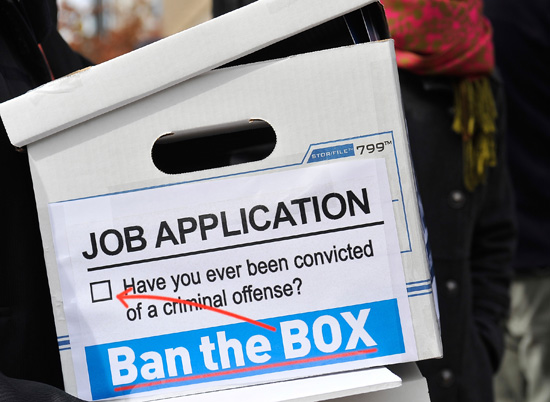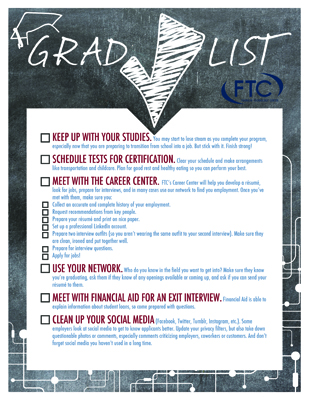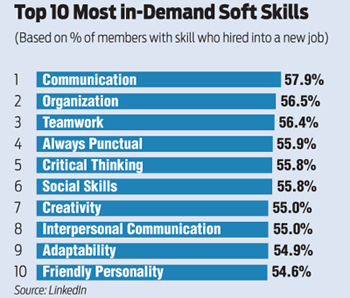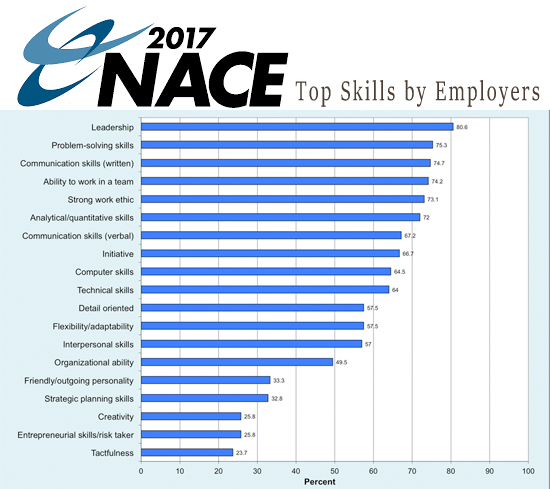The “Great Resignation”
February 21, 2022 Leave a comment
 By; Noreen Malone – New York Times (I read this yesterday and thought it a great take to share on employment in the post COVID world)
By; Noreen Malone – New York Times (I read this yesterday and thought it a great take to share on employment in the post COVID world)
I used to think of my job as existing in its own little Busytown — as in the Richard Scarry books, where there’s a small, bright village of workers, each focused on a single job, whose paths all cross in the course of one busy, busy day. In my neighborhood in Brooklyn, I would see the same person at the Myrtle Avenue bus stop several days a week and imagine where he was going with his Dell laptop bag and black sneakers. I’d buy coffee from a rotating cast of the same baristas at the cafe on the third floor of my office building, where I worked as an editor at a magazine. I’d stop to chat with another editor, whose office was on the other side of the wall from mine; sometimes, she would motion for me to shut the door, and we would say what we really thought about some piece of minor professional gossip, important to at most about 3.5 people in the world. I would watch my boss walk toward a meeting with his boss and wonder whether their chat would wind up affecting my job.
We all mostly worked on computers, typing in documents and sending emails to the person on the other side of a cubicle wall, but there was a bustle to the whole endeavor. It was a little terrarium where we all spent 50 hours a week, and we filled it with office snacks and bathroom outfit compliments and after-work drinks. Even on a day when nothing much happened professionally, there was the feeling of having worked, of playing your part in an ecosystem.
Every job had its own Busytown. Although no one in the broader world wanted to talk about, say, cost-cutting strategies for a potential new client, you could find someone in your Busytown who was just as preoccupied about it as you were. In Scarry’s actual Busytown, meanwhile, the world is populated by people (OK, animals) who find it very easy to explain their jobs. They’re policemen and grocers and postmen and doctors and nurses. When the pandemic hit, the people with those Scarry-style jobs had to keep going to work. Their Busytowns rolled on. And actually, those jobs got harder.
Everyone else has lost all touch with theirs. They log on to Slack and Zoom, where their co-workers are two-dimensional or avatars, and every day is just like the last one. Depending on what’s happening with the virus, their children might be there again, just as in March 2020, demanding attention and sapping mental energy. The internet is definitely there, always, demanding attention and sapping mental energy. A job feels like just one more incursion, demanding attention and sapping mental energy.
And it didn’t help that, early in the pandemic, all jobs were pointedly rebranded: essential or nonessential. Neither label feels good. There is still plenty of purpose to be found in a job that isn’t in one of the helper professions, of course. But “nonessential” is a word that invites creeping nihilism. This thing we filled at least eight to 10 hours of the day with, five days a week, for years and decades, missed family dinners for … was it just busy work? Perhaps that’s what it was all along.
For the obviously essential workers — I.C.U. nurses, pulmonologists — the burden of being needed is a costly one. The word “burnout,” promiscuously applied these days, was in fact coined to diagnose exhaustion in medical workers (in a more quaint time, when we weren’t heading into the third year of a multiwave global pandemic). And meanwhile, a vast majority of people deemed essential have jobs like Amazon warehouse worker or cashier. To be told that society can’t function without you, and that you must risk your health to come in, while other people push around marketing reports from home — often for much more money — it becomes difficult not to wonder if “essential” is cynical, a polite way of classing humans as “expendable” or “nonexpendable.”
Teachers, who happen to be both highly unionized and college-educated, haven’t taken kindly to being on the expendable end of the equation, asked to work in person with tiny people who aren’t good at distancing and masking and have spent the past years cooped up. In early January, I read an article in The Times about the drama between the Chicago teachers’ union and the city over in-person instruction. When classes were abruptly canceled, a mother who worked as a bank teller had taken her child in for day care, provided by nonunionized school employees. (Day care workers: even further down the ugly new caste lines than teachers.) “I understand they want to be safe, but I have to work,” the bank teller said of her child’s teachers. “I don’t understand why they are so special.” This kind of comparison can curdle people’s relationships to one another — and to their own jobs.
Essential or nonessential, remote or in person, almost no one I know likes work very much at the moment. The primary emotion that a job elicits right now is the determination to endure: If we can just get through the next set of months, maybe things will get better.
The act of working has been stripped bare. You don’t have little outfits to put on, and lunches to go to, and coffee breaks to linger over and clients to schmooze. The office is where it shouldn’t be — at home, in our intimate spaces — and all that’s left now is the job itself, naked and alone. And a lot of people don’t like what they see.
THERE ARE TWO kinds of stories being told about work right now. One is a labor-market story, and because that’s a little dull and quite confusing, it’s mixed up with the second one, which is about the emotional relationship of American workers to their jobs and to their employers. The Great Resignation is the phrase that has been used, a little incorrectly, to describe each story.
It’s true that we’re in the midst of a “quitagion,” as this paper has jauntily termed it, citing the record number of people (4.5 million) who gave notice in November alone. An estimated 25 million people left their jobs in the second half of 2021; it’s all but certain that this is the highest U.S. quit rate since the Bureau of Labor Statistics began tracking those numbers in 2000.
The labor market, as economists like to say, is tight: Employment statistics are strong and getting stronger. Despite inflation, real income is up across all income levels. It’s a remarkable turnaround, following the early pandemic’s horrific job losses, which disproportionately affected the lowest earners and those with little job security. Many of the recent quitters have been on the lower part of the income ladder. They’re getting or seeking better work, for more money, because they can. And that kind of labor market means at least some lower-income workers get to think about their jobs the way the white-collar class more traditionally has, as something that needs to work for them, rather than the other way around.
But those top-line numbers obscure a muddier truth. After the latest employment numbers were released in February (which seemed to show remarkable job growth and an unemployment rate of 4 percent), one B.L.S. economist took to his Substack to call it the “most complicated job report ever.” In addition to those workers trying to trade their way into objectively better jobs, millions of others have simply left the work force — because they’re sick, or taking care of children, or retiring, or just plain miserable.
The precise reasons are a little mysterious. The jobs recovery isn’t spread evenly across industries, nor is the quit rate. Staffing levels in the leisure and hospitality sectors are still 10 percent lower than they were prepandemic, and according to December’s job report, people who work in hotels and restaurants are the most likely to have quit. Eight percent of all jobs in health care are open right now. There are almost 400,000 fewer health care workers now than there were before the pandemic. As LinkedIn’s chief economist put it to CBS News, “It may not just be worth it for some folks.”
Even among the people who were technically employed, a sizable number were unable to work because of child care issues or sick leave. Add to that the fact that many people who would prefer full-time work with benefits are still working on employers’ terms, which means part-time, unstable employment, as The Times’s Noam Scheiber recently reported. And if you dig into the quit numbers for higher-wage workers, it’s still hardly about people going on “Eat, Pray, Love” journeys. The full picture just isn’t that rosy.
It’s also not entirely a fluke of this moment. For decades, job productivity has been increasing while real wages haven’t. People were already stretched thin. The writer Anne Helen Petersen, who has made a specialty of truffle-hunting for the millennial internet’s preoccupations, recently wrote a book about professional-class burnout based on a viral 2019 BuzzFeed article she wrote on the same subject. (Her lead personal example involved not getting around to having her knives sharpened.) I was in a particularly stressful moment of a management job at the time and would Google the symptoms of burnout late at night, on a private browser screen. But I was allergic to people talking ostentatiously about it, and I was embarrassed by the indulgence of the language, or, maybe, what I saw as the self-importance of it.
Now, though, it’s as if our whole society is burned out. The pandemic may have alerted new swaths of people to their distaste for their jobs — or exhausted them past the point where there’s anything to enjoy about jobs they used to like.
Perhaps that’s why the press is filled with stories about widespread employee dissatisfaction; last month a Business Insider article declared that companies “are actively driving their white-collar workers away by presuming that employees are still thinking the way they did before the pandemic: that their jobs are the most important things in their lives,” and pointed to a Gallup poll that showed that last year only a third of American workers said they were engaged in their jobs.
At Amazon, in its managerial ranks, employee departures have reached what is being seen as a “crisis” level, according to Bloomberg’s Brad Stone. (A source told him that the turnover rate was as high as 50 percent in some groups, although Amazon disputes this.) One woman, leaving her job, posted in an internal listserv she started called Momazonian, which has more than 5,000 members. “While it has been an incredibly rewarding place to work, the pressure often feels relentless and at times, unnecessary,” she wrote, in a Jerry Maguire screed for the careful networker set; she also copied senior vice presidents and some board members.
It’s not an accident that it was the moms’ affinity group where she aired that feeling. A McKinsey study from last year showed that 42 percent of women feel burned out, compared with 32 percent in 2020. (For men, it jumped to 35 percent from 28 percent.) At the beginning of the pandemic, the working world lost more than 3.5 million mothers, according to the Census Bureau; and the National Women’s Law Center found that in early 2021, women’s labor-force participation was at a 33-year-low, returning us all the way back to the era when “Working Girl” was revolutionary. Many of those women haven’t come back.
So the numbers are bad enough. But then there’s the way the hard facts of the economy interact with our emotions. Consider this theory: that the current office ennui was simply the inevitable backlash to the punishing culture of the previous decade’s #ThankGodItsMonday culture. And furthermore, sometime around the rise of #MeToo (and after Donald Trump’s election), ambition began to seem like a mug’s game. The enormous personal costs of getting to the top became clear, and the potential warping effects of being in charge also did. It wasn’t just the bad sexually harassing bosses who were fired but the toxic ones, too, and soon enough we began to question the whole way power in the office worked. What started out as a hopeful moment turned depressing fast. Power structures were interrogated but rarely dismantled, a middle ground that left everyone feeling pretty bad about the ways of the world. It became harder to trust anyone who was your boss and harder to imagine wanting to become one. Covid was an accelerant, but the match was already lit.
Recently, I stumbled across the latest data on happiness from the General Social Survey, a gold-standard poll that has been tracking Americans’ attitudes since 1972. It’s shocking. Since the pandemic began, Americans’ happiness has cratered. The graph looks like the heart rate has plunged and they’re paging everyone on the floor to revive the patient. For the first time since the survey began, more people say they’re not too happy than say they’re very happy.
The plague, the death, the supply chain, long lines at the post office, the collapse of many aspects of civil society might all play a role in that statistic. But in his classic 1951 study of the office-working middle class, the sociologist C. Wright Mills observed that “while the modern white-collar worker has no articulate philosophy of work, his feelings about it and his experiences of it influence his satisfactions and frustrations, the whole tone of his life.” I remember a friend once saying that although her husband wasn’t depressed, he hated his job, and it was effectively like living with a depressed person.
After the latest job report, the economist and Times columnist Paul Krugman estimated that people’s confidence in the economy was about 12 points lower than it ought to have been, given that wages were up. As the pandemic drags on, either the numbers aren’t able to quantify how bad things have become or people seem to have persuaded themselves that things are worse than they actually are.
IT’S NOT IN just the data where the words “job satisfaction” seem to have become a paradox. It’s also present in the cultural mood about work. Not long ago, a young editor I follow on Instagram posted a response to a question someone posed to her: What’s your dream job? Her reply, a snappy internet-screwball comeback, was that she did not “dream of labor.” I suspect that she is ambitious. I know that she is excellent at understanding the zeitgeist.
It is in the air, this anti-ambition. These days, it’s easy to go viral by appealing to a generally presumed lethargy, especially if you can come up with the kind of languorous, wry aphorisms that have become this generation’s answer to the computer-smashing scene in “Office Space.” (The film was released in 1999, in the middle of another hot labor market, when the unemployment rate was the lowest it had been in 30 years.) “Sex is great, but have you ever quit a job that was ruining your mental health?” went one tweet, which has more than 300,000 likes. Or: “I hope this email doesn’t find you. I hope you’ve escaped, that you’re free.” (168,000 likes.) If the tight labor market is giving low-wage workers a taste of upward mobility, a lot of office workers (or “office,” these days) seem to be thinking about our jobs more like the way many working-class people have forever. As just a job, a paycheck to take care of the bills! Not the sum total of us, not an identity.
Even elite lawyers seem to be losing their taste for workplace gunning. Last year, Reuters reported an unusual wave of attrition at big firms in New York City — noting that many of the lawyers had decided to take a pay cut to work fewer hours or move to a cheaper area or work in tech. It’s happening in finance, too: At Citi, according to New York magazine, an analyst typed “I hate this job, I hate this bank, I want to jump out the window” in a chat, prompting human resources to check on his mental health. “This is a consensus opinion,” he explained to H.R. “This is how everyone feels.”
Things get weird when employers try to address this discontent. Amazon’s warehouse workers have, for the past year, been asked to participate in a wellness program aimed at reducing on-the-job injuries. The company recently came under fire for the reporting that some of its drivers are pushed so hard to perform that they’ve taken to urinating in bottles, and warehouse employees, for whom every move is tracked, live in fear of being fired for working too slowly. But now, for those warehouse workers, Amazon has introduced a program called AmaZen: “Employees can visit AmaZen stations and watch short videos featuring easy-to-follow well-being activities, including guided meditations [and] positive affirmations.” It’s self-care with a dystopian bent, in which the solution for blue-collar job burnout is … screen time.
The cultural mood toward the office even appears in the television shows that knowledge workers obsessed over. Consider “Mad Men,” a show set during the peaking economy of the late 1960s. It was a show that found work romantic. I don’t mean the office affairs. I mean that the characters were in love with their work (or angrily sometimes out of love, but that’s a passion of its own). More than that, their careers and the little dramas of their daily work — the presentations to clients, the office politics — gave their lives a sense of purpose. (At the show’s end, Don Draper went to a resort that looks an awful lot like Esalen to find out the meaning of life, and meditated his way into a transformative … Coke ad campaign.)
Peggy Olson, the striving adwoman on the make, has recently been taken up as the patron saint of quitters. An image of her shows up frequently illustrating articles about people leaving their jobs, sometimes in GIF form. In it, Olson is wearing sunglasses, carrying a box of office stuff. She has a cigarette dangling from her mouth, off to the side for maximum self-assurance. But she isn’t actually quitting in that scene. Instead, she’s walking into a new, better job at a different agency. The swagger she has comes from ambition, not from opting out.
That show was on the air from 2007 to 2015, at the peak of what sometimes gets called hustle culture (and Obama-era optimism). Back then — just before, during and after a psyche-shattering global recession — work had betrayed large swaths of the population, but many (at least those who were better off, for whom the economy recovered much more quickly) took that as inspiration to work harder, to short-circuit the problems of employment with entrepreneurship, or the dreams of it. Start a company! Build a brand! Become a girlboss! (A word that used to be a compliment, not an insult.)
Now, Sunday nights are for “Succession,” the beloved pitch-black workplace drama of the post-Trump nihilistic years. On that show, whose third season recently came to a close, work is a corrupting force. The Roy family is ruined not by their money but by their collective desire to run a conglomerate. Ambition perverts the love between parent and child, husband and wife, brother and sister. Even the from-nothing strivers on the show are ruined by their jobs. It’s a Greek tragedy filtered through the present moment, in which every bit of labor is said to happen under late capitalism, and all the jobs are burnout jobs.
When “Succession” was over, the office workers of America got up off the couch, and they turned off the TV. They dozed off thinking about the psychological abuse the Roys heap on one another and their Waystar Royco underlings, then sat on the same couch Monday morning.
IT’S IMPORTANT TO acknowledge that some people have reacted to this moment by becoming less cynical about the possibilities of work. The broader world is getting darker — climate change, crumbling democracy. It feels impossible to change it. But work? Work could change. An idealistic generation has set about demanding a utopian world, on a local scale, in their own little Busytowns. More diversity, more attention to structural racism, better hours, better boundaries, better leave policies, better bosses.
At some companies, it finally feels as if the old hierarchies are being upended, and the top-paid people are running a little scared of their underlings, rather than the other way around. (No one has much sympathy for managers, and it’s true, as Don Draper once told Peggy Olson, that’s what the money is for. But steering a company through the past few years has been its own particular challenge.)
Confronted with this world, many young people with professional options want to be in solidarity with their colleagues instead of climbing the ladder above them. The meaning that they once found in work is now found in trying to make the workplace itself better. At Authentic, a Democratic consulting firm, some members of the unionized staff are refusing to work a contract serving Senator Kyrsten Sinema. Unionized think-tankers at the Center for American Progress, which tends to serve as a pipeline to coveted roles in Democratic presidential administrations, threatened to strike in mid-February over their wages. Some congressional staff members have begun the process of forming a union.
I’m now on staff at a digital news site that is unionized; I marvel at the fact that I can have a job with a title like “editor at large” and all the benefits that come from union membership. At Google, home of plush offices and free meals, the company formally recognized a union in early 2021 composed of 400 of its highly paid engineers. The professional managerial classes — as Bernie Sanders supporters called that slice of the white-collar work force pejoratively — are in the middle of developing a class consciousness.
So some of the most prestigious offices are organizing, and the college-educated make up a larger slice of the union pie than ever, thanks largely to growth among teachers’ unions. But union membership, more broadly, is at an all-time low. Those warehouse employees at Amazon voted against unionization in Alabama last year. (A federal review board found that Amazon had improperly pressured staff members against forming a union, and ordered a revote, which will take place in five weeks.) Amazon workers might end up voting to join a union. Starbucks employees are starting the process, too. But somehow, workplace protections still seem in danger of becoming one more luxury item that accrues to the privileged.
Perhaps there’s no better example of this than what happened at Goldman Sachs last year. Junior bankers in San Francisco felt alienated over their long hours, what they considered low pay and lack of Seamless stipends while working from home. They made a formal presentation to their office’s top executives, relying on survey data they gathered that showed, for instance, that three-quarters of them felt they had been victims of workplace abuse. It was something a little like collective action by America’s future elite.
One lead organizer of that action was, as Bloomberg reported, the son of the vice chairman of TPG Capital, a private-equity firm. His father, a creature of a previous zeitgeist, got his start working for Michael Milken at Drexel Burnham Lambert, the famously competitive (and corrupt) investment bank.
The son’s hostile takeover worked. The Goldman analysts got their base pay raised by nearly 30 percent. New York magazine reported that while at least five of the 13 analysts from the protest cohort in San Francisco had already left Goldman (four of whom were women of color), the bank was having no trouble recruiting college students to join the next class of analysts.
The Goldman raise is a reminder of a cold, hard fact. One that is explained in the very first sentence of Richard Scarry’s “What Do People Do All Day?”: “We all live in Busytown and we are all workers. We work hard so that there will be enough food and houses and clothing for our families.” Work is mainly, really, about making money to live. And then trying to make some more. A boring, ancient story. The future of work might be more like its past than anyone admits.
© 2022 The New York Times Company












Please Share Us!